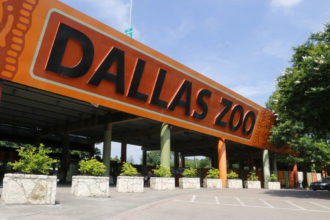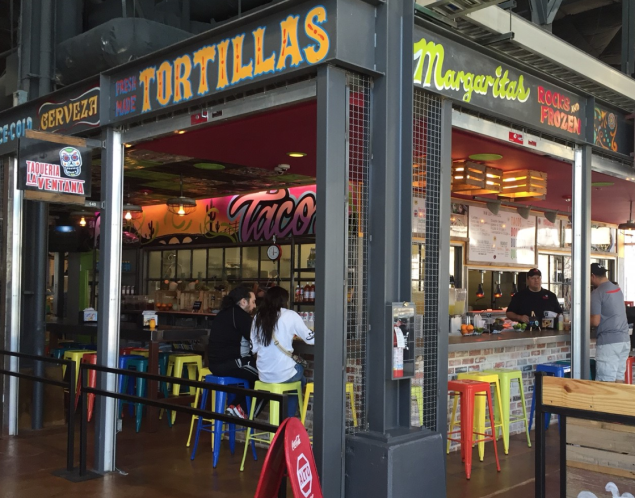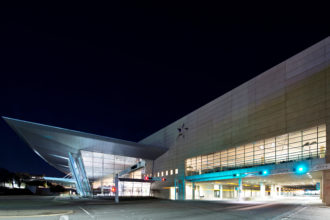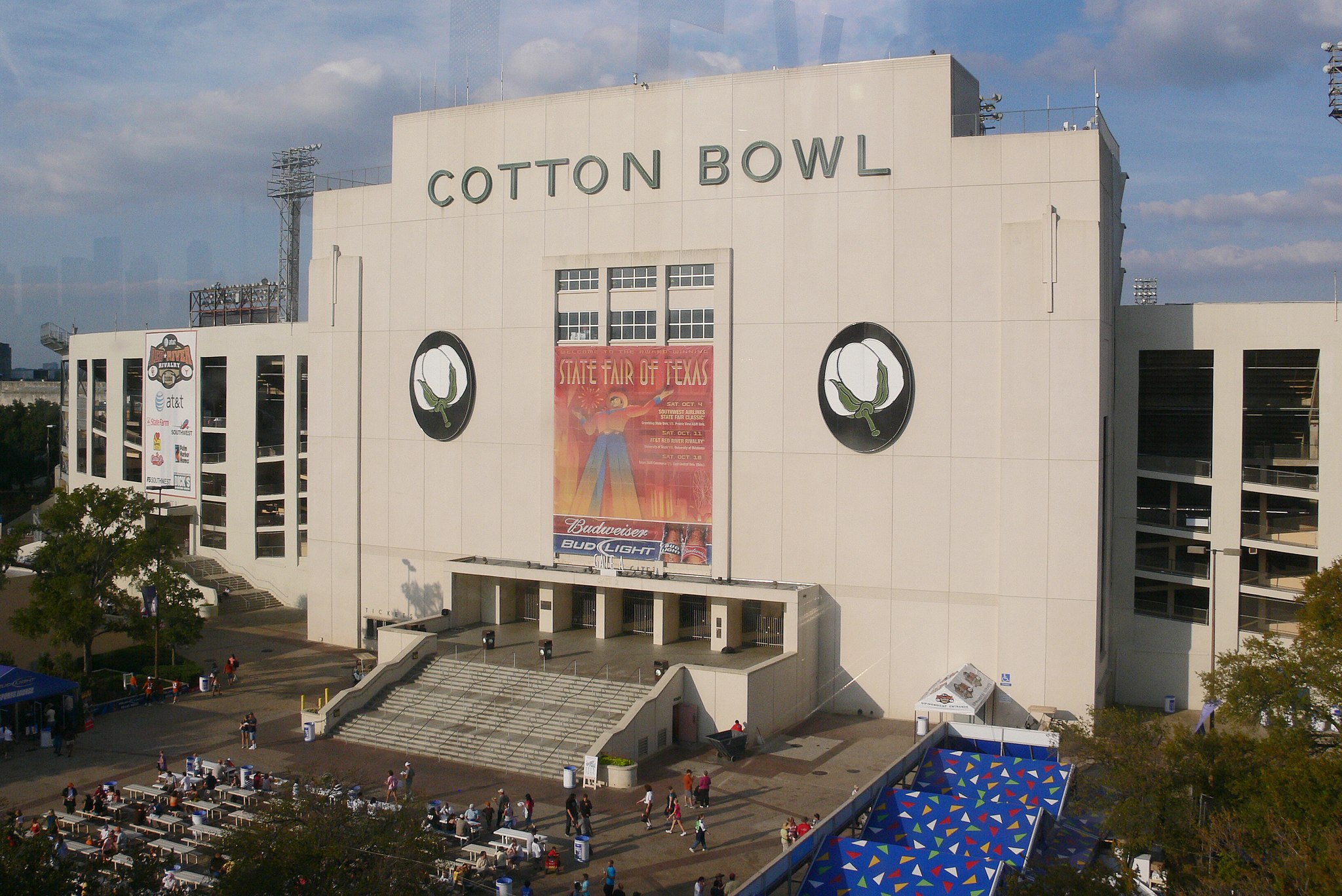Now that Dallas city officials have accepted a management proposal, Fair Park may get a more sure-footed future. The debate over the privatization of the fairgrounds and event space has raged for years, but turning over public spaces to private hands hasn’t always been so hard.
More than 30 years ago, Dallas tried the same idea. From the moment its doors opened in 1984, the Dallas Arboretum and Botanical Garden has been publicly owned and privately operated. The city must have thought it was a success because, within the last decade, it has also handed its zoo and farmers market over to private hands.
Fair Park would not be the first city-owned venue to profit from a private-sector partnership, nor would it be the last: The Kay Bailey Hutchison Convention Center could be next. In May, the city council put out a request for proposals, which were to be submitted by late June. (The connected hotel is owned by the city and operated by the Omni Dallas Hotel.)
Giving a public space to a private manager does more than add elephants to the zoo or fill the farmers market with locally baked bread. If it’s done right, it creates savings for taxpayers and frees up resources at City Hall. As the city continues to expand its partnerships with private expertise, here’s a look at how it’s gone in the past, and what it may hold for the future.
The Dallas Zoo
Privatized: 2009
Managed by: Dallas Zoological Society
Perhaps the most celebrated of Dallas’ public-private partnerships is the zoo. “I think a lot of people look at the zoo, and the city partnership is probably one of the more progressive and effective public-private partnerships in the city of Dallas,” Dallas Zoo President and CEO Gregg Hudson says.
Almost nine years ago, the Dallas City Council voted unanimously to allow a private organization to take over management of the Dallas Zoo. The Dallas Zoological Society founded the nonprofit Society and Dallas Zoo Management to do the job, and it has been running both the zoo and the Children’s Aquarium at Fair Park ever since. The nonprofit agreed to manage the zoo and aquarium for 25 years, with two automatic five-year renewal periods.

Hudson says the revenue has grown with attendance, which started around 650,000 when the Dallas Zoological Society took over and has grown to 1.2 million visitors in 2017. “I think the biggest thing is that the city has empowered us to run it as the experts that we are,” Hudson says.
Hudson says much of the zoo’s success has to do with the support of the city as well as that of donors. The zoo has increased its revenue each year since its privatization, but it’s also increased its expenses, ending some years in the red. For the fiscal year of 2017, however, the zoo finished with a profit of about $1.3 million.
The Dallas Farmers Market
Privatized: 2013
Managed by: Spectrum Properties
Since 2013, Spectrum Properties has virtually taken over the downtown farmers market, where it also purchased most of the land. But even though it’s largely owned and operated by the company, the Farmers Market still maintains close ties with the city.

“We work closely with the city,” Spectrum Properties CEO and President Brian Bergersen says. A stakeholder in downtown, Spectrum has other partnerships with the city at Third Rail Lofts and some properties near Dallas Love Field.
Spectrum changed the standards for foods sold at the market by requiring Texas-grown foods. Bergersen says they’re only interested in vendors who are “unique, local, and have an interesting brand.”
Over the past five years, housing units in the neighborhood surrounding the market have more than doubled. The farmers market has long appealed to foodies and local-business lovers, and now it’s continuing to promote local growth. “This area has become very, very popular,” Bergersen says. “That’s all because of the privatization of the Dallas Farmers Market.”
During the six years leading up to its privatization, the market lost $3.7 million. Since its rebirth, Bergersen says the market hasn’t made a profit, but it hasn’t lost money, either. And bringing in extra cash isn’t Spectrum’s goal, Bergersen says. It’s revitalizing the whole community. “It’s our anchor. We’re more concerned about filling it with farmers and artisans.”
The Dallas Arboretum and Botanical Garden
Privatized: 1984
Managed by: Dallas Arboretum & Botanical Society, Inc.
Unlike the zoo and farmers market, the arboretum has been publicly owned and privately operated since it began. When the arboretum opened in 1984, the nonprofit Dallas Arboretum & Botanical Society Inc. managed the space, which has since undergone several renovations and additions to the gardens, buildings, and parking. Arboretum Board Chairman J. Mark Wolf says the botanical garden has attracted more than a million visitors a year for the past two years.

The arboretum has operated “in the black” for the last 23 years, Wolf says. Because it’s managed by a nonprofit, the arboretum can raise money without burdening taxpayers. Besides contributions from donors, the arboretum raises funds through membership, rentals, and ticket sales.
Kay Bailey Hutchison Convention Center
City officials have been considering privatization of the Kay Bailey Hutchison Convention Center since last year, when its director quit. The 2 million-square-foot arena hosts about 100 events each year.

Proposals for new management were due in late June, and now City Manager T. C. Broadnax must recommend a firm by September. Currently owned and operated by Dallas’ Department of Convention and Event Services, the center is funded mostly by the Hotel Occupancy Tax and Alcohol Beverage Tax. And despite its $76.5 million budget, it brings in only $9.5 million in event revenue annually.
Fair Park
Home of the State Fair of Texas, Fair Park has been in the middle of a privatization debate for years. Proponents of bringing in a private manager say doing so will make the grounds more vibrant for the majority of the year, barring the three weeks when millions of visitors swarm in to eat corndogs and snap pictures of Big Tex.
Now the park may finally get the chance at a makeover. Dallas City Hall has accepted a proposal by a group made up of Fair Park First, a nonprofit, as well as Spectra, a Comcast-owned hosting and entertainment company that manages more than 300 properties, including fairgrounds, across the U.S. The park’s 277 acres will remain city property. If the Park Board and the City Council approve the plan, the years of debate about Fair Park’s future may finally end.
The group is asking for $34.5 million from the city over the next 10 years, though the city currently spends much more, upwards of $15 million each year. That could put the city’s savings at more than 77 percent. The Park Board is expected to vote on the bid, which would give Spectra 20 years of management over Fair Park, in mid-August.
By this fall, both Fair Park and the convention center may be modeling themselves after the other public-private partnerships in Dallas. Spectrum Properties’ Bergersen says if the circumstances are right, the collaboration can thrive: “Public-private partnerships work really well so long as the parties are aligned. The city can’t dump something and not help. On the other side, you need to have a developer who will fulfill its obligations. A public-private partnership needs good partners.”






